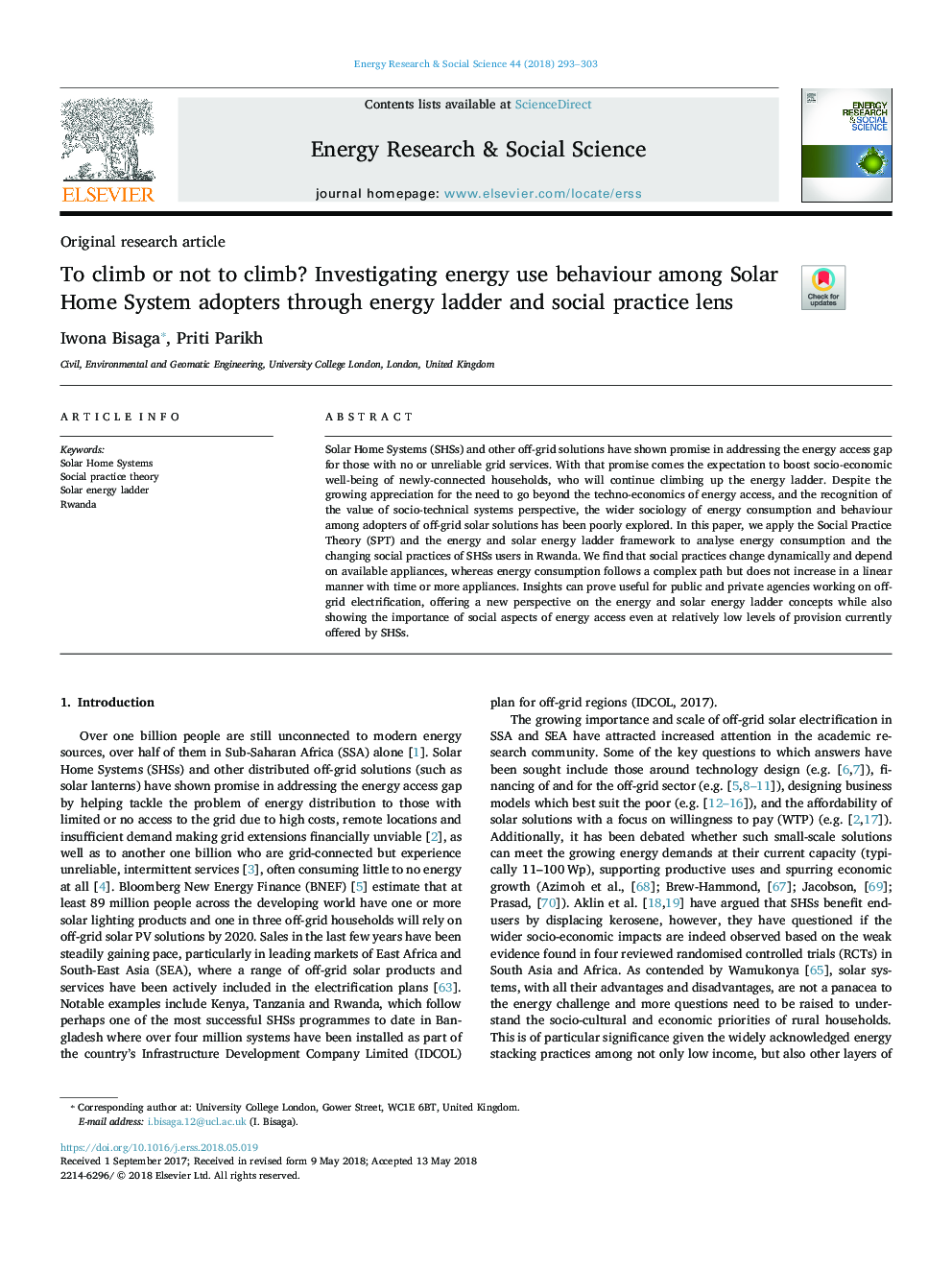| Article ID | Journal | Published Year | Pages | File Type |
|---|---|---|---|---|
| 6557250 | Energy Research & Social Science | 2018 | 11 Pages |
Abstract
Solar Home Systems (SHSs) and other off-grid solutions have shown promise in addressing the energy access gap for those with no or unreliable grid services. With that promise comes the expectation to boost socio-economic well-being of newly-connected households, who will continue climbing up the energy ladder. Despite the growing appreciation for the need to go beyond the techno-economics of energy access, and the recognition of the value of socio-technical systems perspective, the wider sociology of energy consumption and behaviour among adopters of off-grid solar solutions has been poorly explored. In this paper, we apply the Social Practice Theory (SPT) and the energy and solar energy ladder framework to analyse energy consumption and the changing social practices of SHSs users in Rwanda. We find that social practices change dynamically and depend on available appliances, whereas energy consumption follows a complex path but does not increase in a linear manner with time or more appliances. Insights can prove useful for public and private agencies working on off-grid electrification, offering a new perspective on the energy and solar energy ladder concepts while also showing the importance of social aspects of energy access even at relatively low levels of provision currently offered by SHSs.
Related Topics
Physical Sciences and Engineering
Energy
Energy (General)
Authors
Iwona Bisaga, Priti Parikh,
